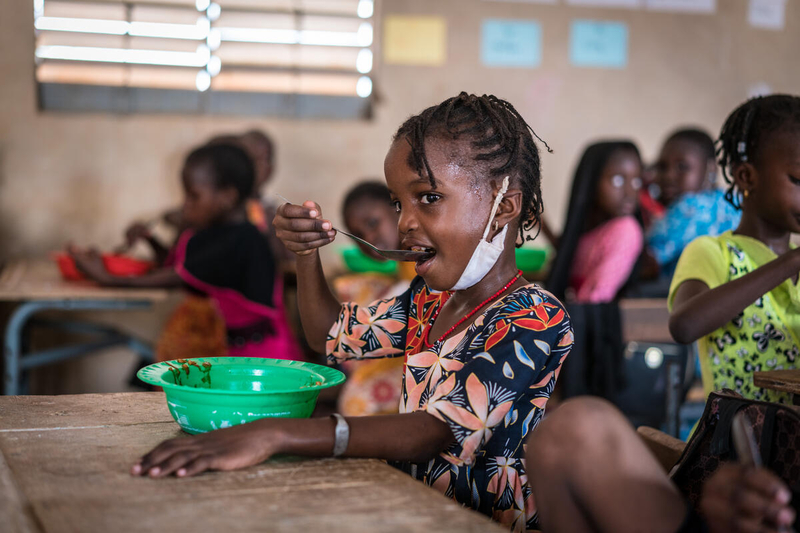
On Wednesday, 20 July, the WFP Centre of Excellence against Hunger in Brazil participated in a webinar on school feeding organized by the Senegalese Ministry of Education, WFP Senegal and the Regional Centre of Excellence against Hunger and Malnutrition in Côte D’Ivoire (CERFAM). The event highlighted the knowledge and experiences exchanged between Senegal and several countries with innovative practices and successful models in school feeding based on local products, notably Niger, Benin, Nigeria, and Ghana, including organizations such as CERFAM and the Centres of Excellence in China and Brazil.
The Centre of Excellence in Brazil also supported the participation of the National Fund for Education Development (FNDE), which showcased the country’s successful experience in school feeding. The overall objective of the event was to support the implementation and documentation of the results of the South-South and Triangular Cooperation project, strengthening the capacity and knowledge of government parties through the sharing of successful experiences and models of feeding and acquisition of local products for school feeding.
Shared experiences
El Hadj Seck, a representative of the Ministry of Education in Senegal, pointed out that the school feeding programme, which is being revised, is part of a national strategy and has the mission of serving schools in rural areas. WFP supports the country in implementation and advocacy efforts.
Armelle Korogone, WFP representative in Benin, highlighted that school feeding projects take place at the national level, in partnership with local governments. The projects operate in conjunction with integrated management committees, which have an important participation of women. Currently, through the Ministry of Education, and together with WFP, food is purchased directly from local cooperatives, including cereals.
Uduak Igbeka, from WFP in Nigeria, explained that cooks play an important role in the implementation of school feeding and are contracted directly by the government. The programmes have undergone adaptation to meet local specificities, to design menus that are really aligned with local production, integrating healthy, nutritious and diverse menus.
According to Isabella Araújo Figueiredo, Head of Division of Family Agriculture in the Brazilian National School Feeding Programme (PNAE), this is a policy that directly contributes to food security in Brazil and is a constitutionally guaranteed right and duty of the State. PNAE respects local culture and food habits since there are different eating habits throughout the country. In this sense, in terms of management, the federal government is in charge of regulation, and states and municipalities implement the programme.
Isabella Figueiredo also highlighted that the programme has councils that were created by the population and are composed of school principals, parents and other stakeholders to monitor the type of food served, the process of buying local produce and other aspects of the implementation of the programme, playing an important role in the monitoring phase.
Finally, Soha Haky, from WFP’s school programmes division in Rome, congratulated the event organizers for the creation of spaces that promote exchanges of best practices and improvements with experiences from different countries. The event was moderated by CERFAM’s Director Patrick Teixeira.




